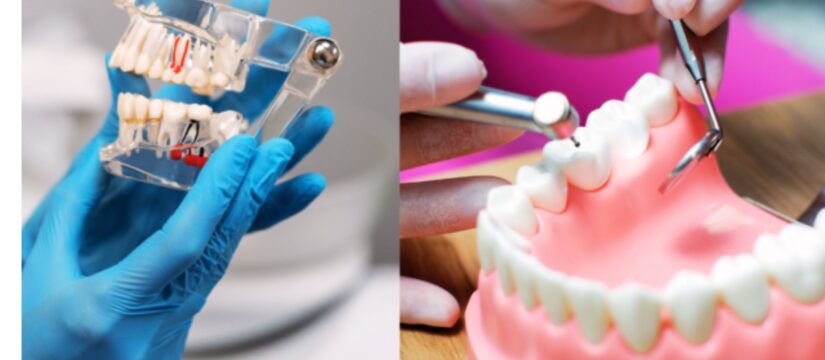
When it comes to replacing missing teeth, dental bridges and implants are two popular options. Both have their own advantages and considerations, so choosing between them can be challenging. This guide will help you understand the differences between dental bridges and implants, and how to decide which option might be right for you.
What Are Dental Bridges?
Dental bridges are a traditional solution for replacing missing teeth. They consist of one or more artificial teeth (pontics) that are anchored in place by crowns on the adjacent natural teeth or implants. This creates a “bridge” that fills the gap left by the missing tooth.
Types of Dental Bridges
Traditional Bridges: These are the most common type and are used when you have natural teeth on either side of the gap.
Cantilever Bridges: These are used when there is only one adjacent tooth to support the bridge.
Maryland Bridges: These use a metal or porcelain framework bonded to the back of the adjacent teeth and are less invasive.
Implant-Supported Bridges: These are supported by dental implants instead of natural teeth, providing more stability.
What Are Dental Implants?
Dental implants are a modern and permanent solution for missing teeth. They consist of a titanium post that is surgically placed into the jawbone, which acts as a replacement root. Once the post integrates with the bone (a process called osseointegration), a crown is placed on top to complete the restoration.
Components of Dental Implants
Implant Post: The titanium screw that is placed into the jawbone.
Abutment: The piece that connects the implant post to the crown.
Crown: The visible part that looks like a natural tooth.
Comparison of Dental Bridges and Implants
Here’s a comparison of dental bridges and implants to help you decide which might be the better option for you.
| Feature | Dental Bridges | Dental Implants |
| Durability | 5-15 years, depends on oral hygiene | 25+ years with proper care |
| Procedure | Less invasive, no surgery required | Requires surgery for implant placement |
| Bone Preservation | Does not prevent bone loss | Prevents bone loss by stimulating bone growth |
| Cost | Generally lower initial cost | Higher initial cost, but long-term value |
| Maintenance | Requires care of surrounding teeth | Requires care of the implant and surrounding gums |
| Aesthetic |
Natural-looking but may not match exact tooth color | Highly natural-looking, can be customized to match surrounding teeth |
Advantages and Disadvantages
Advantages of Dental Bridges
Less Invasive: The procedure is less invasive compared to implants.
Faster Results: You can get a bridge fitted in a few weeks.
Cost-Effective: Generally less expensive initially than implants.
Disadvantages of Dental Bridges
Tooth Reduction: Requires the adjacent teeth to be altered and crowned.
Bone Loss: Does not prevent jawbone loss over time.
Durability: May need to be replaced every 5-15 years.
Advantages of Dental Implants
Long-Term Solution: Can last 25 years or more with proper care.
Bone Health: Helps maintain and stimulate jawbone health.
No Impact on Adjacent Teeth: Does not require alteration of nearby teeth.
Disadvantages of Dental Implants
Cost: Higher initial cost compared to bridges.
Surgical Procedure: Requires surgery and a healing period.
Time-Consuming: The process can take several months from placement to final restoration.
Which Option Is Right for You?
Deciding between dental bridges and implants depends on several factors, including:
Budget: If cost is a major concern, bridges might be a more feasible option.
Bone Health: If you have sufficient jawbone density and are looking for a long-term solution, implants might be preferable.
Oral Health: Your current oral health and the condition of your adjacent teeth can influence the decision.
Treatment Timeline: If you need a quicker solution, bridges might be the better choice.
Consulting a Professional
The best way to determine which option is right for you is to consult with a dental professional. They can assess your specific needs and recommend the most suitable treatment based on your oral health and personal preferences.
Both dental bridges and implants offer effective solutions for replacing missing teeth, each with its own set of benefits and considerations. By understanding the differences and consulting with your dentist at you can make an informed decision that aligns with your dental needs and lifestyle. Contact Us Today!
